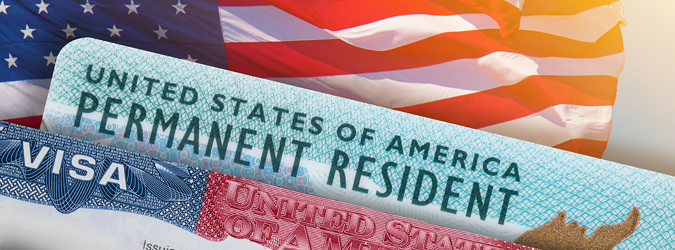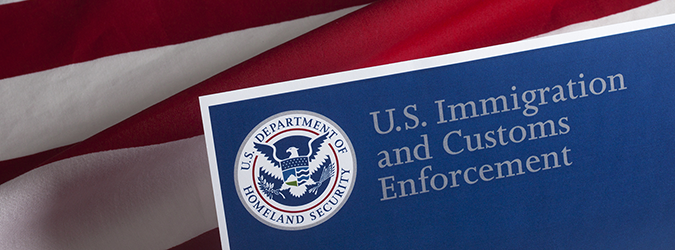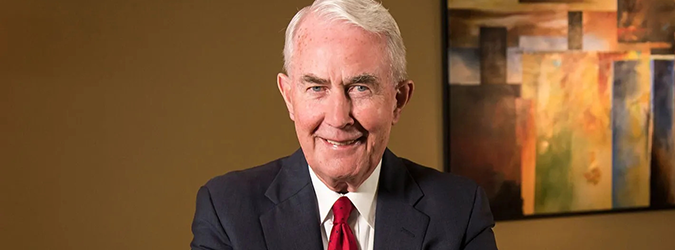Partnership Conference Marks 30 Years of Honoring Civil Legal Service in New York State
9.27.2024

Opening Session Focuses on Immigration Law
For 30 years, the New York State Bar Association has supported civil legal service providers with training and networking opportunities during its biennial Partnership Conference. The 2024 conference brought together 500 providers discussing important issues including education, access to health care, immigration and affordable housing.
“The availability of affordable housing is historically low, and the cost of rent is up seven times more than the growth of salaries,” said New York State Bar Association President Domenick Napoletano. “We know these are critical issues in our state and we encourage all lawyers to give their time and talent to those in need.”
Chief Judge Rowan Wilson also addressed the conference, stressing the need to invest in diversionary programs and problem-solving courts along with civil legal services.
“We cannot only focus on court funding, but finding a just, fair and timely resolution to problems,” he said. “For me, those court success stories represent what is possible when we focus on solving the problems of those who come before us.”
The Long Road to Legal Status
Rachel Braunstein and Susanna Saul of Her Justice presented findings from the group’s recent study of the barriers facing immigrant women seeking work permits in the U.S. The study also documented how the women’s lives changed after getting a permit or employment authorization document and landing a legal job. They hope their research will influence lawmakers to expedite work authorization for new immigrants.
“Our goal is to provide the greatest number of immigrant women a better immigrant status to give them safety and dignity,” said Saul who serves as director of immigration practice at Her Justice. The civil legal service provider recruits volunteer lawyers from the private bar to provide pro bono services in family, matrimonial, and immigration law. Her Justice has helped more than 45,000 women and children since 1993.
More than half of Her Justice clients are undocumented immigrants in New York City who have experienced domestic violence, trafficking, and other forms of gender-based violence. Many of the clients are eligible for relief under the Violence Against Women Act or the U Nonimmigrant status, also called a U visa. Both forms take years to process, and delays got longer because of the Covid pandemic. According to the panel, Congress has capped the number of U visas to just 10,000 per year, which creates a long waiting list of applicants.
The study followed 30 women who were living in the shadows, doing informal work such as childcare or cleaning and getting paid under the table. It documented how the women were abused by their employers, underpaid or not paid at all and deprived of work benefits such as sick leave. Without a work permit, many of these women stayed in abusive relationships and lived in substandard housing.
“Some women were not allowed to work outside the home,” said Saul. “Others fear being deported and leaving their U.S.-born children behind with an abusive partner.”
Without working papers, most women were too afraid to seek out social service benefits.
“You can tell clients all day long that they have the right to get Medicaid but without the employment authorization document they will not go to that office,” said Braunstein who serves as policy director. “The reality is they are scared and won’t go. This community outreach is essential to connect people to services.”
The Power of the Work Permit
The study provides a glimpse of how life for these women changed when they came out of the shadows and entered the legal workforce.
“Having a work permit allowed me to have a much better environment for my daughters and myself. I moved to public housing from a shelter and now we have two bedrooms. I was able to get a full-time job, so I don’t have to worry about next week and bills,” said Jenny who – like other study participants — is only identified by her first name. She is a U visa holder who immigrated to the U.S. in 1995 and obtained work authorization in 2018.
“Having a work permit gives a sense of independence. I feel like I’m a part of society. Once you have a work permit, people won’t take advantage of you,” said Anna. She immigrated to the U.S. in 1985 and obtained work authorization in 2016.
“My dream has come true to be in the United States of America. I love this country. Now, I get to have a life. I can pay taxes. I can get a job and make myself somebody,” said Amala. She is a U visa holder who immigrated to the U.S. in 1998 and obtained work authorization in 2022.
Braunstein reminded the audience at the Partnership Conference that the courage of women who seek help from Her Justice cannot be overstated. “Remember, just coming to our office for help is an act of bravery in itself.”
The New York State Bar Association will be posting recordings from the partnership conference soon. Here are some of the topics that were covered:
Mortgage Foreclosure: Navigating Settlement Conferences
New Medicaid Dental Coverage Rules
Expanding Special Education to Age 22: Where Are We Now?
Building Good Working Relationships with Clients Who Have Mental Health Concerns
Advocacy for Immigrant and Refugee Communities
Racial Disparities in Low Level Traffic Stops – New Approaches to an Old Problem
Equitable Justice in Landlord Tenant Proceedings
Discharging Student Loan Debt in Bankruptcy
Family and Medical Leave Benefits for Workers
Current Legal Issues in Accessing Medicaid Long Term Supports and Services
How to Chart a Repair Path: Article 7-C v. Article 7-D of the RPAPL | Warranty of Habitability
Disparities in Education: Discipline and Discrimination and Disrupting the School to Prison Pipeline with Holistic Representation
Public Benefits Training for Housing Attorneys
Culturally Competent Lawyering for LGBTQ Clients
Access to Justice for Gender-Based Violence Survivors with Developmental Disabilities
Expansion of Cash Assistance and Medicaid Eligibility for Non-Citizens
Building Partnerships to Improve Safety Outcomes for Victims of Technology Abuse






